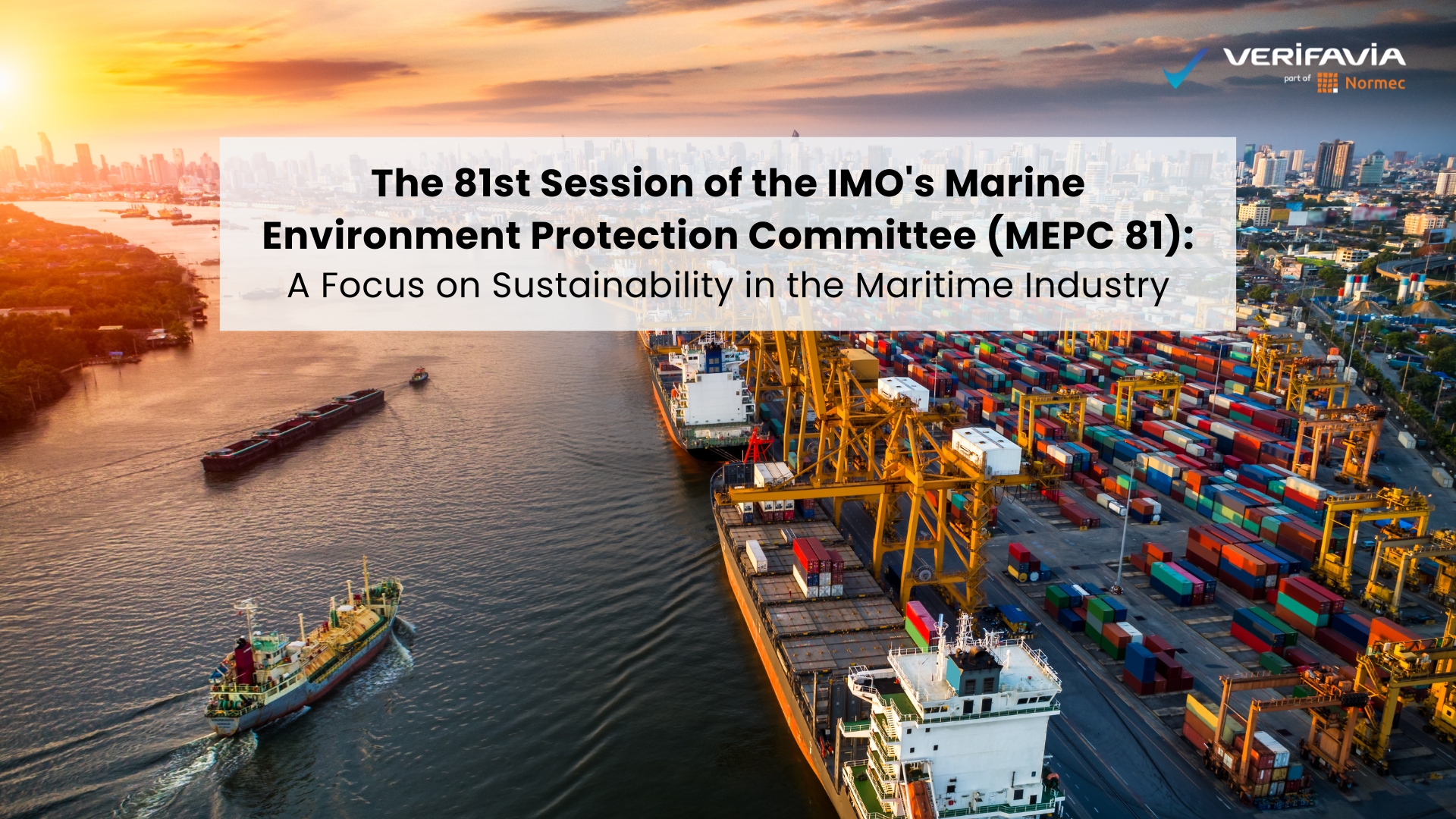The 81st Session of the IMO's Marine Environment Protection Committee (MEPC 81): A Focus on Sustainability in the Maritime Industry

The 81st session of the International Maritime Organization's (IMO) Marine Environment Protection Committee (MEPC), held in London from March 18-22, 2024, marked a significant step forward in the maritime industry's transition towards sustainability. The Committee addressed a wide range of environmental challenges through in-depth discussions, the formal adoption of new regulations, and the establishment of frameworks to guide future actions.
Ballast Water Management: Strengthening the Regulatory Framework
MEPC 81 recognized the need to enhance the current Ballast Water Management Convention (BWM Convention) framework and initiated a comprehensive review process. Key areas of focus included:
- Improving Guidance and Procedures for Ballast Water Management Systems (BWMS) Approval
- Strengthening Information Requirements within Ballast Water Management Plans and Certificates
- Integrating Biological Compliance Testing during Ship Surveys
- Ensuring Reliable Compliance with the D-2 Discharge Standard
Air Pollution from Ships: Evaluating Emission Standards and Compliance
MEPC 81 acknowledged the need to evaluate the effectiveness of the current Nitrogen Oxide (NOx) Tier III emission standards, particularly in areas near ports. Discussions are ongoing to potentially extend or revise these standards.
The Committee also considered the use of nitrate concentration data for Exhaust Gas Cleaning Systems (EGCS) as part of the compliance monitoring process. These discussions will continue at future MEPC meetings.
Furthermore, MEPC 81 adopted amendments to regulation 13.2.2 of MARPOL Annex VI, addressing the requirements for a marine diesel engine replacing a steam system.
Enhancing Ship Energy Efficiency: Updating Guidelines and Reporting Procedures
Recognizing the importance of ship energy efficiency, MEPC 81 took several key actions:
- Adoption of updated 2024 Guidelines for the Ship Energy Efficiency Management Plan (SEEMP)
- Adoption of updated 2024 Guidelines for Administration verification of ship fuel oil consumption data and operational carbon intensity
- Adoption of updated 2024 Guidelines on the shaft/engine power limitation system to comply with the EEXI requirements and use of a power reserve.
- Approval of the Procedure for reporting to the Organization the uses of a power reserve
Reducing Greenhouse Gas (GHG) Emissions from Ships: Establishing the "IMO Net-Zero Framework"
MEPC 81 made significant progress in addressing the maritime industry's contribution to climate change. The Committee agreed on an illustration of a possible draft outline for an "IMO net-zero framework" to guide the development of regulations for:
- A goal-based marine fuel standard regulating the phased reduction of the fuel's GHG intensity.
- An economic mechanism(s) to incentivize the transition to net-zero emissions.
- Adoption of revised Guidelines on life cycle GHG intensity of marine fuels (LCA Guidelines)
- Approval of terms of reference for a GESAMP Working Group on Life Cycle GHG Intensity of Marine Fuels.
- Establishment of correspondence groups to develop a regulatory framework for onboard carbon capture systems and to address measurement and verification of non-CO2 GHG emissions.
Addressing Marine Litter: Enhancing Reporting and Carriage of Plastic Pellets
MEPC 81 prioritized the issue of marine plastic litter by taking two key actions:
- Adoption of amendments to MARPOL Protocol I, requiring mandatory reporting of lost freight containers
- Approval of Recommendations for the carriage of plastic pellets by sea in freight containers, addressing packaging, transport information, and stowage
Emission Control Areas (ECAs): Advancing Cleaner Shipping in Sensitive Regions
MEPC approved proposals for the designation of two new Emission Control Areas (ECAs):
- Proposed ECA in Canadian Arctic Waters, for Nitrogen Oxides, Sulphur Oxides, and Particulate Matter
- Proposed ECA in the Norwegian Sea for Nitrogen Oxides and Sulphur Oxides
Implementation Timelines and Next Steps for Shipping Companies
The decisions made at MEPC 81 will result in the following regulatory changes and implementation timelines:
Ballast Water Management Convention (BWM Convention) Amendment:
- Electronic Record Books (Optional): Effective January 1, 2026
- Marine Diesel Engine Replacement: Effective August 1, 2025
- Canadian Arctic ECA: Earliest effective March 1, 2026 (pending MEPC 82 adoption)
- Norwegian Sea ECA: Effective March 1, 2030 (pending MEPC 82 adoption)
Review and Update Practices:
- Revise engine replacement plans to adhere to clarified NOx Tier requirements.
- Familiarize crews with any modifications to SOx sampling locations.
- Update Bunker Delivery Note templates for low-flashpoint fuels.
- Implement processes for capturing and reporting additional data elements through the enhanced DCS (early implementation encouraged from January 1, 2025)
- Review the newly adopted guidance on identifying challenging water quality and procedures for operating in such conditions.
- Consider adopting electronic record books for ballast water management procedures (effective January 1, 2026)
Stay Informed:
Regularly review updates from the IMO website and industry publications to stay abreast of evolving regulations, particularly decisions made at future MEPC meetings (MEPC 82 & 83)
Evaluate and Prepare:
Assess the potential impact of future regulations focused on GHG emission reduction and explore alternative fuels and technologies to enhance the sustainability of the fleet.
By taking these proactive steps, shipping companies can ensure a smooth transition towards a more sustainable future and compliance with the upcoming regulatory changes aimed at reducing the maritime industry's environmental footprint.
Connect with us at insights@verifavia.com to understand how Verifavia can help.
Back to all Industry News





